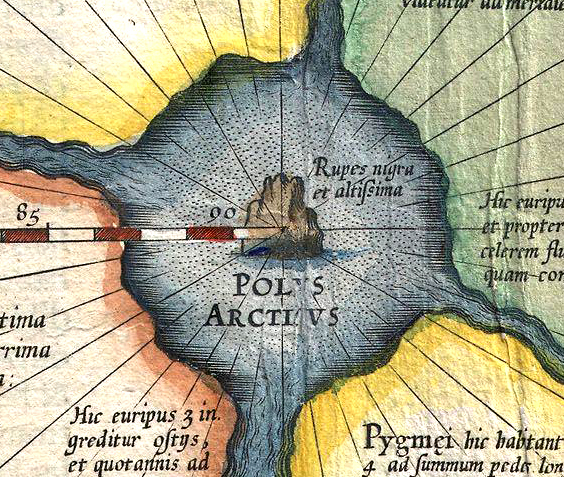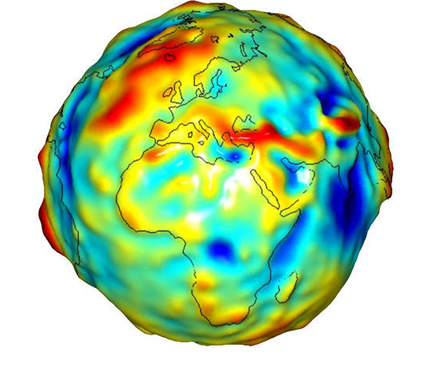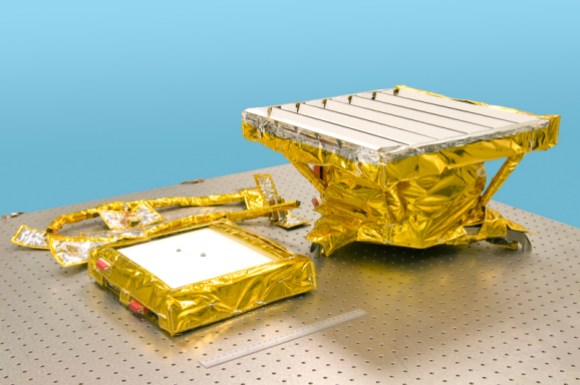
I am a geophysics professor. I first encountered Wikipedia in 2010, when I did an online search for my specialty, rock magnetism. The top hit was a Wikipedia article. It was a sad little stub—three sentences, no references and one external link—yet it was the first resource people would turn to on this subject.
I created an account (with the user name RockMagnetist), and started editing that stub. I expanded it by a factor of about 20.[1] From there, I started looking at increasingly general articles—first paleomagnetism, then the Earth’s magnetic field, and then geophysics. I found huge holes in their coverage. The main article on geophysics was primarily a collection of lists, while major subfields like geophysical fluid dynamics and mineral physics had no article. Perhaps, I thought, I should be spending my time filling in the big picture.
This wasn’t a trivial task, as geophysics is a broad, interdisciplinary subject. It intersects with many fields, including geology, oceanography, glaciology, and space physics, and its boundaries are hard to define. There is even a field of biogeophysics. No book or series of books covers the full breadth of this subject. Given this, I came up with a novel approach for the main article. I started with basic physical phenomena, like gravity and heat flow, and wrote sections on how they related to the Earth. Then, I started to write about how geophysicists gather information on these phenomena to learn about the Earth and its surroundings, and I created some of those missing articles for the subfields. I made a lot of progress, but got to a point where adding to the geophysics article would take more research than I had time for.
Putting the geophysics project aside, I wandered about Wikipedia, contributing to hundreds of articles in the earth sciences and physics on a broad range of subjects. Often, these were the result of some call for help. Someone complained that the article on momentum was inaccessible, so I rewrote it to build up the subject from the simplest ideas to the most complex. Other times, I found some fascinating sources on a subject, like the history of geomagnetism (see the image at top). And perhaps most often, I came across a page with glaring problems and couldn’t resist the urge to fix them.

Scientific biographies are a special challenge. Many Wikipedians think it unfair that there aren’t more articles on scientists, but there are good reasons for that: generally, science journalists write about research, not the people doing it. Even scientists write little about the people in their field. Often, Wikipedians can’t write a good biography on a scientist until their obituary is published. Some argue that we can still write a biography of a scientist if their work is discussed in depth in reliable, independent sources, but that is also rare. Although a distinguished scientist’s publications will have been cited thousands of times, typically each citation is a bare mention. As a result, many of the scientific biographies on Wikipedia are little more than CV‘s. Still, there are some surprising omissions (even the occasional Nobel Laureate with just a stub), and I have written biographies on several scientists.
So why do I do all this writing for Wikipedia? In my day job, I have published two research papers that have been cited over 100 times. The rest have been cited less frequently. Some of the Wikipedia articles I have edited, however, are read by over a million people a year. Its impact is such that even a stub, like that article on rock magnetism, can be the top hit for a Google search. I spent some time on the Physics Stack Exchange looking at questions on geomagnetism, and was amused to find people recommending articles that I wrote.
Recently, I became a visiting scholar with the Deep Carbon Observatory (DCO). The visiting scholar program was developed by the Wikimedia Foundation to connect Wikipedia editors with organizations that have resources for research and would like to see more articles on their subject area. Because I have worked on a lot of earth science articles, people who were trying to set up the DCO program approached me for help. At first I wasn’t interested, but when I read about the DCO, some of their work caught my interest. For example, they found that as tectonic plates dive into the interior, more carbon is taken from the Earth’s surface than is returned to the surface by volcanoes. At this rate, life will start to suffer from carbon limitations—albeit in about 100 million years.
I am getting an honorarium for this work, which is a first for the visiting scholars program. The Wiki Education Foundation hopes that incentives will lead to better use of the program’s resources and benefit Wikipedia.[2] The DCO is a loose collaboration of thousands of scientists, doing work that covers a broad range of subjects related to carbon in the Earth, including deep life. I have agreed to provide context for their work, taking care to remain neutral. So far, I have expanded a couple of scientific biographies of DCO scholars; created articles on organic minerals and extraterrestrial diamonds; and extended the list of mineralogists. I have also added a lot of material to geochemistry—I was amazed to find that most of the existing article was taken from an article in the 1911 edition of Encyclopedia Britannica! One of my next goals is to improve the geology section in the article on diamonds.

And one of these days I’ll get back to that article on rock magnetism.
Andrew Newell (User:RockMagnetist), Wikimedian
Footnotes
- I must confess that it is still not a very good article. I think I’m too close to it and have too much to say, so I have trouble saying anything.
- The Wiki Education Foundation and I are well aware that there is a potential conflict of interest (COI). Wikipedia has a “behavioral guideline” to avoid such conflicts, and Wikipedians are responsible for following both the basic disclosure requirements and the guidelines set by the site’s community—which includes declaring their source of income on their user page and on the talk page of each page they edit (this being Wikipedia, there is a standard template for that). I created a special account for this work and I add the template to talk pages when I make major changes.

Can you help us translate this article?
In order for this article to reach as many people as possible we would like your help. Can you translate this article to get the message out?
Start translation